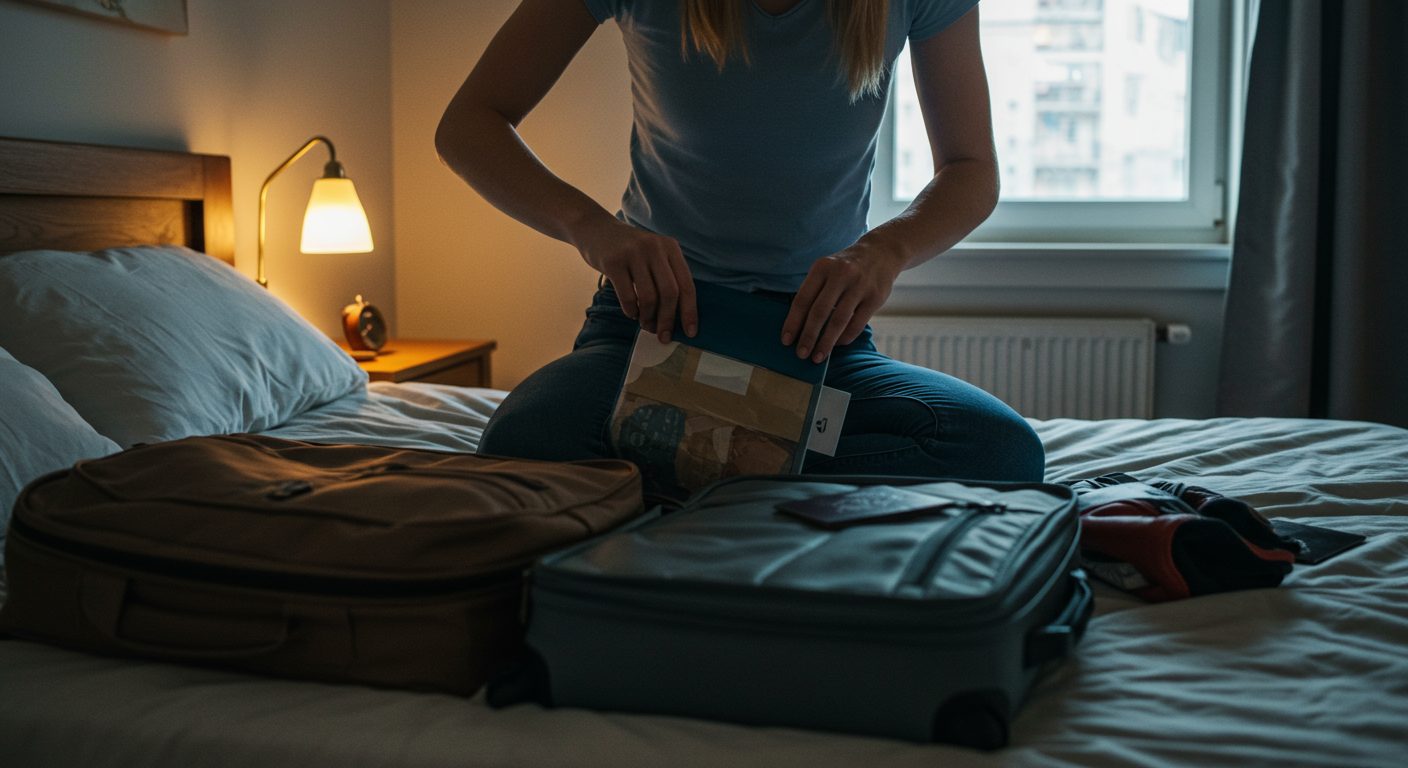Are you tired of surprise fees eating into your travel budget? International travel can be expensive, and airline baggage fees are a common culprit. This guide is your complete solution for navigating baggage allowance policies, packing smarter, and keeping more money in your pocket. Whether you're a seasoned globetrotter or a first-time flyer, understanding baggage allowance is crucial for a smooth and cost-effective journey. Let's dive in and uncover the secrets to avoiding those pesky fees!

The Problem: What's Really Happening
Airline baggage fees are a significant source of revenue, and they're constantly evolving. These fees aren't always transparent, and they can vary widely depending on the airline, the route, and even the time of year. Common pitfalls include:
- Overweight Bags: Exceeding weight limits, even by a pound or two, can trigger hefty fees. These fees can range from $50 to $200 or more, depending on the airline and the excess weight.
- Oversized Bags: Bags that exceed the maximum size dimensions (usually a combination of length, width, and height) are also subject to extra charges.
- Multiple Bags: Many airlines limit the number of free checked bags, and additional bags come with a fee.
- Unexpected Fees: Some airlines have hidden fees for specific items or services, like bringing a musical instrument or sporting equipment.
- Changing Policies: Airlines frequently update their baggage policies, so what was free last year might cost extra now.
Why This Affects International Travelers
International flights often have stricter baggage allowances than domestic flights. The fees can be higher, and the enforcement can be more stringent. Also, international travel frequently involves longer trips, meaning travelers tend to bring more luggage. Currency conversion also makes it hard to track costs.
Root Causes Analysis
- Profit Maximization: Airlines are businesses and are always looking for new revenue streams.
- Fuel Costs: Rising fuel costs are often cited as a reason for increased baggage fees.
- Competition: Airlines compete on price, and unbundling services allows them to offer lower base fares and charge extra for extras like baggage.
- Standardization: There's a lack of standardization across airlines, leading to confusion among travelers.
Step-by-Step Solution Framework
Here's a practical framework to help you avoid baggage fees:
- Research: Before you book your flight, check the baggage allowance policy of the airline. This includes weight limits, size restrictions, and fees for extra bags.
- Weigh and Measure: Use a luggage scale and measuring tape to ensure your bags meet the requirements.
- Pack Strategically: Utilize packing cubes to compress your clothes and maximize space. Wear your heaviest items on the plane.
- Choose the Right Bag: Consider a lightweight carry-on that meets size requirements and a personal item to maximize your free allowance.
- Consider Shipping: If you have bulky items, explore shipping them to your destination.
- Review: Before heading to the airport, double-check the latest baggage policy updates.
Prevention Strategies
- Read the Fine Print: Thoroughly review the airline's baggage policy before booking and before your flight.
- Use a Luggage Scale: A portable luggage scale is a small investment that can save you a lot of money.
- Pack Light: The lighter you pack, the less you have to worry about fees.
- Consider Travel Insurance: Some travel insurance policies cover lost or delayed baggage.
- Check for Bundles: Some airlines offer bundles that include checked bags, which can be a cost-effective option.
When to Seek Professional Help
While you can usually resolve baggage fee issues directly with the airline, there are times when you might need professional help:
- Disputes: If you believe you were wrongly charged or that the airline mishandled your luggage, file a formal complaint.
- Lost or Damaged Luggage: If your luggage is lost or damaged, you may need to file a claim with the airline or your travel insurance provider.
- Legal Advice: In complex situations, especially involving significant financial loss, you may want to consult with a legal professional.
International Legal Protections
Many countries have regulations protecting air passengers' rights. These rights vary by region, so it's essential to understand the laws in your destination and origin countries.
- Montreal Convention: This international treaty governs liability for lost, damaged, or delayed baggage on international flights.
- European Union: The EU has strong passenger rights regulations, including compensation for delayed or canceled flights and lost baggage.
- United States: The U.S. Department of Transportation has regulations regarding baggage fees and lost luggage.
Your Action Checklist
- Review Airline Policies: Before booking and before you fly.
- Weigh and Measure: Always check bag dimensions.
- Pack Smart: Use packing cubes and wear bulky items.
- Consider Alternatives: Explore shipping options for large items.
- Keep Records: Save all receipts and documentation related to your baggage.
- Know Your Rights: Understand the relevant passenger protection regulations.
Next Steps in Your Travel Journey
With a solid understanding of baggage allowance, you're well-equipped to navigate the complexities of international travel. Remember to stay informed about airline policies, pack strategically, and know your rights. By taking these steps, you can avoid unnecessary fees, save money, and enjoy a more stress-free travel experience. Safe travels!